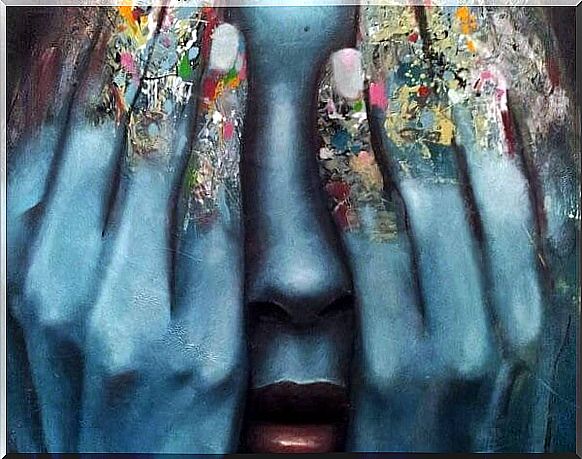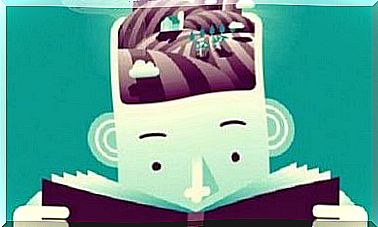When You Do Not Feel Anything During Depression

Most people have had depression at one time or another. Some people experience a mixture of sadness and anger combined with discouragement. On the other hand, others feel emptiness and a total absence of emotions. Depression is like having lead in the body and fog in the mind. During depression, it is as if reality is blurry and we are stuck in absolutely nothing. It’s like we do not feel anything.
Phillip Lopate, a well-known North American essayist and writer, described this feeling in his stupendous poem entitled Numbness (Numbness). This poem tries to bring out this feeling – the experience of a complete emotional void. In his poem, Lopate describes depression as walking through an area filled with ice. Depression makes you feel completely indifferent to a frosty, cold heart. Lopate leaves us with the vision of an anorexic illusion where we are displaced from the rest of the world.
One thing we need to understand about depression is that few diseases are as complex and multifaceted. Some people with this disease show obvious symptoms, while others have invisible symptoms for months or years. It affects sleep, concentration, memory, movement, and even how we interact with language.
Now, we do not often talk about clinical depression. We do not always discuss that a patient can feel absolutely nothing. Instead of normal emotions, the patient feels that a wall has completely disconnected them from the rest of the world. Even from himself.

What should you do when you are not feeling anything during depression?
One reason you do not feel anything during depression is that you have previously been in a situation that was so emotional and intense that you did not know how to deal with it. The clinical literature describes this as an “emotional hangover”. An emotional hangover comes from going through something that completely takes control of our emotions. In addition, after depression, we may be left with other conditions such as anxiety disorders or unresolved trauma.
When we talk about depression, we must mention one of the predetermined concepts that many people have about this. People continue to associate this disease with sadness. However, many patients struggle with layers of emotion. Depression is not just sadness. It includes pessimism, anger and discouragement. It gives us a sense of instability and an emotional neutrality that can give us physical symptoms. It can occur as migraines, muscle aches and digestive problems.
Patients who fit into this profile may also suffer from hypersomnia, where they sleep between 10 and 15 hours each day. They also claim that they feel unable to smile or cry. It is as if their body and mind not only forgot how to perform these actions, but as if they completely forgot the meaning of these emotional gestures. Furthermore, we will talk about these devastating symptoms and their explanations.

Pre-printed emotions
Many of us have been trained since childhood to hide or disguise what hurts, bothers, or worries us. This is one reason why you may not feel anything during depression. This is very common when it comes to a complex family situation or a stressful work environment.
These situations generate a high level of anxiety that can become chronic until the disorder turns into depression. We can get used to this feeling for months or years without realizing it. We forget how to externalize our worries, fears or regrets, and our brains begin to feel numb. A similar phenomenon is the classic mental fog, which is where we react slowly to our environment, in addition to our attention being reduced along with concentration and memory.
Past trauma
If we read Phillip Lopate’s poems describing insensitivity during the depression we talked about in the beginning, we find something very revealing. In part of the poem, Lopate talks about his father calling him “a cold fish” since he was nine years old. He began to see himself based on his father’s criticism, and his father ridiculed him for his shy demeanor and appearance. Lopate began to see himself in this negative way.
Something we often see in patients with depression is how a complex past, or unresolved trauma, can cause this disease characterized by emotional insensitivity.
What therapeutic strategies should be used in these cases?
Our brain is an amazing organ. In addition to being wonderfully sophisticated, it is so complex because it is responsible for ensuring our evolutionary success. This complexity is why it is so challenging to solve brain-related problems, such as depression.
We must first understand that no matter how many times others repeat that the brain is like a computer, it is not true. We are not machines. In fact, emotions control the brain. Understanding these processes, both how to deal with them and making them work for our benefit, is the only way out of the prison of depression.

Psychologists recommend starting sentences with the phrase “I feel” when we do not feel anything during depression. It is necessary to reveal the many layers of our emotions so that we can get to the root of the problems. We need to explore what scared us in previous traumas so that we can be healed and move on. Cognitive behavioral therapies can help us in this way.
As we begin to let go of our anger, our fears, and our worries, we begin on our path to recovery.








